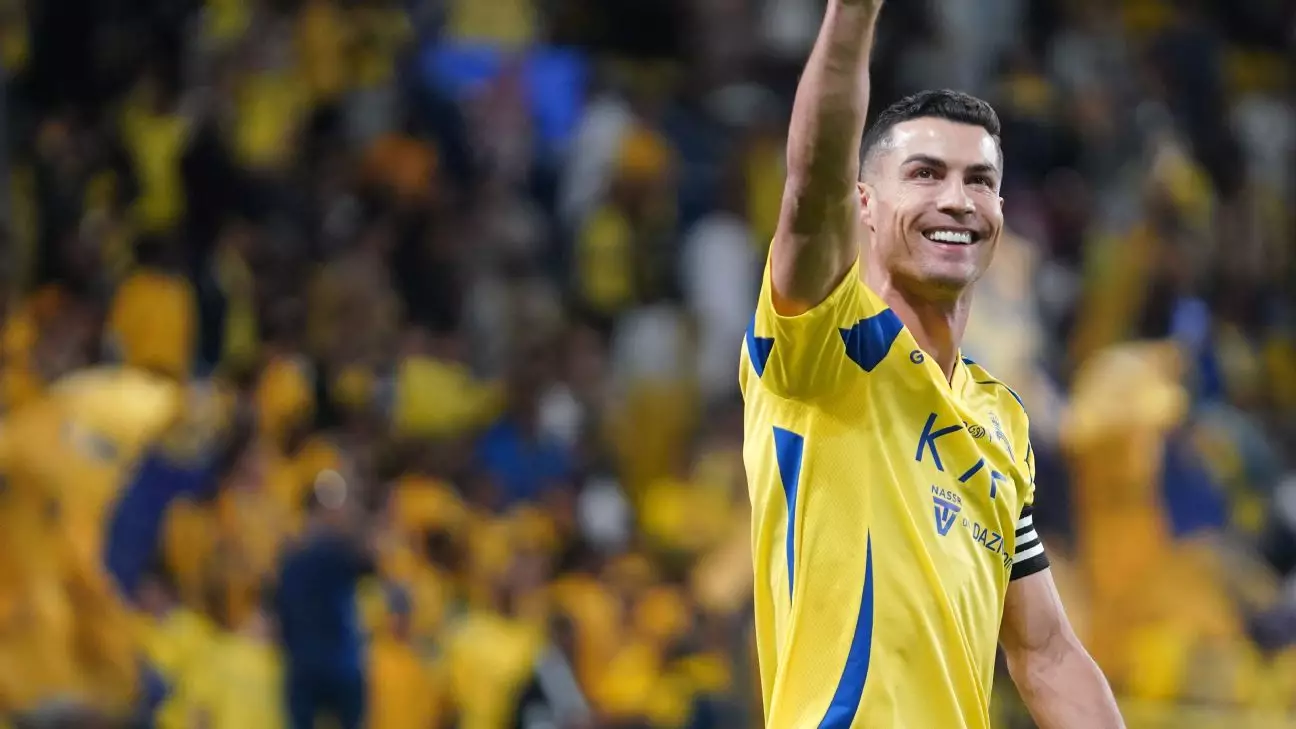Cristiano Ronaldo’s recent reflections on Manchester United’s ongoing struggles shed light on the multilayered issues plaguing the club. With new manager Ruben Amorim at the helm, the Red Devils find themselves reeling from an underwhelming record, having secured only five victories in his ten matches. The stark reality, as Ronaldo elaborately expressed, transcends mere managerial shortcomings. His analogy comparing the team’s situation to an aquarium illustrates a fundamental truth: issues persist beyond the surface, rooted deeply in organizational and structural dysfunctions.
Ronaldo’s insights emphasize a critical understanding that many observers might overlook—the problems afflicting Manchester United can’t simply be attributed to the tactics or decisions made by the current coaching staff. He noted that the competitive landscape of the Premier League has shifted dramatically, making every match challenging and unpredictable. This honest reflection not only highlights the growing intensity of the league but also the enormous responsibility placed upon managers, particularly new ones like Amorim, who are expected to deliver results almost immediately.
Additionally, Ronaldo’s commentary indicates a profound concern regarding the club’s ownership—an issue he had previously vocalized. The Glazer family’s stewardship has long been scrutinized, with many fans echoing Ronaldo’s sentiments that their focus is lacking in terms of genuine care for the club’s future. This overarching theme not only informs the context in which Amorim is operating, but also illustrates how the dilemma surrounding the club may require a drastic shift in ownership philosophy rather than just another managerial change.
Ronaldo provocatively mentioned that, if he were to assume control, he would take decisive action to rectify what he perceives as shortcomings at the club. His ambition of wanting to own a major football club reflects both his connection to Manchester United and a desire to influence positive change. He paints a picture of a visionary leader, someone who wishes to intervene in a situation that he believes requires more than just tactical adjustments.
Despite his criticisms, Ronaldo’s affection for Manchester United is palpable. His commentary demonstrates a blend of nostalgia and disappointment, revealing how personal attachment can coexist with criticism. He recognizes the talent and potential within the team, acknowledging the uphill battle that comes with competing in one of the globe’s most demanding leagues. The blend of hope and apprehension in his words suggests a longing for the club to recapture past glories, reminding fans and insiders alike that deep-rooted issues need to be addressed for rehabilitation and resurgence.
While Amorim has achieved success in the Primeira Liga with Sporting CP, striking a chord of optimism in Ronaldo, he is well aware of the challenges drawing closer in England. This awareness reflects a broader narrative—the struggle for old giants like Manchester United to adjust and compete in a rapidly evolving football ecosystem.
As Ronaldo contemplates the next chapter of his career, the prospect of potential club ownership adds excitement and intrigue. Though he remains non-committal about specific clubs or timelines, his assertive declarations signal an evolution of ambition that transcends playing. His aspiration for ownership resonates particularly well given the recent tumult within the club’s management structures.
For the football community, his journey from player to potential owner places Ronaldo in a unique position to shape a footballing philosophy rooted in experience and passion. His critiques and aspirations are free from the typical constraints of a player contemplating retirement; they stem from a deep-seated connection to the beautiful game and a desire to influence it from a different angle.
Cristiano Ronaldo’s reflections on Manchester United serve as an insightful critique and a hopeful message. The club’s ongoing challenges are manifestations of deeper issues requiring strategic resolutions. Ultimately, if the Glazers do not prioritize the club’s success and listen to voices like Ronaldo’s, Manchester United may continue to wrestle with its identity amidst the pressures of modern football. As Ronaldo forges ahead, the football world will be eager to witness whether he translates his aspirations into real impact, paving the way for a hopeful future for one of football’s most storied clubs.

